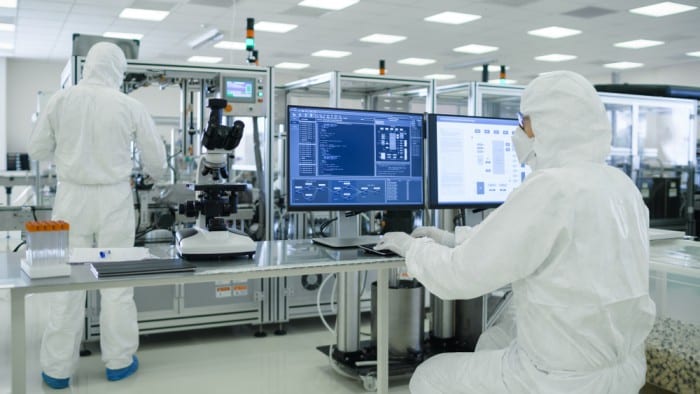Best practices for procurement in pharmaceutical industry operations

Summary
The best practices for procurement in the pharmaceutical sector start with ensuring the availability of medicines and medical devices, maintaining optimal quality and safety, as well as establishing cost-effectiveness for sustainable operations.
It is also important to ensure that procurement functions are aligned towards complying with ethical practices and maximising transparency and accountability so that integrity is maintained within the function.
Finally, all efforts are tied in by optimising the effectiveness of supply chain management for continued procurement excellence.
By following these practices, organisations can help ensure that the medicines they produce and distribute are of the highest quality and that patients have access to the medication they need.
Procurement is a highly critical function in the pharmaceutical industry that involves acquiring medicines, medical devices, and related services required for the manufacturing and distribution of pharmaceutical products.
It plays a crucial role in ensuring the quality, safety, and efficacy of medicines, and any mistakes in the procurement process can lead to significant consequences regarding patient health and safety.
As such, the World Health Organisation (WHO) has developed operational principles for good pharmaceutical procurement to guide organisations in ensuring the best practices in this area.
In this blog post, we will explore some of these principles and highlight some of the best practices and objectives to be achieved through proper procurement in pharmaceutical industry operations.
Ensuring the availability of medicines and medical devices
The primary goal of pharmaceutical procurement is to ensure the availability of essential medicines and medical devices for patients. This requires ensuring that the right quantities of medicines are procured at the right time and that they are distributed to the appropriate locations.
The WHO recommends that procurement in pharmaceutical industry operations should be based on a quantification process that takes into account the epidemiological profile of the population, the disease burden, and the availability of resources.
This means that organisations should have a good understanding of the needs of the population they serve and should use this information to guide their procurement decisions.
Furthermore, they should invest in building reliable logistics networks and supply chains for the timely delivery of medicines and medical devices in optimal conditions.
Maintaining optimal quality and safety
Another critical aspect of pharmaceutical procurement is maintaining the quality and safety of medicines and medical devices.
This area includes ensuring that the medicines and medical devices procured are of the appropriate quality and that they are manufactured, stored, and transported in a way that does not compromise their quality and safety.
Principles laid out by the WHO recommended that organisations should only procure medicines and medical devices from reliable sources that are authorised by regulatory authorities, in accordance with national formularies, and guidelines for quality.
In addition, they should ensure that the medicines are not only properly labelled and packaged but also stored and transported in appropriate conditions to avoid degradation.
Establishing cost-effectiveness
Cost-effectiveness is another essential consideration for procurement in pharmaceutical industry operations. Organisations need to ensure that they are procuring medicines at the most competitive prices without compromising on quality.
To realise this, organisations need to conduct a rigorous tendering process that includes multiple bidders and transparent evaluation criteria.
Recommendations from the WHO suggest that organisations should use standard procurement procedures, such as competitive bidding, to ensure that they are getting the best value for their money.
This in turn should translate to reasonable prices for medicines and medical devices in the market and requires extensive control of other costs related to procurement.
Complying with ethical practices
Ethical considerations are an area that needs to be emphasised heavily in pharmaceutical procurement.
Organisations should ensure that they are procuring medicines from suppliers that follow ethical practices and not those who are engaged in any exploitation or corrupt activities.
The WHO recommends that organisations should establish ethical codes of conduct for their procurement staff, suppliers, and other stakeholders.
Moreover, they should conduct regular audits and assessments to ensure that ethical practices are being followed.
Maximising transparency and accountability
Ensuring the integrity of the procurement process requires organisations to maximise transparency and accountability as critical focus areas.
Pharmaceutical organisations should ensure that their procurement process is transparent and that stakeholders are aware of the criteria used to evaluate bids and select suppliers.
In addition, they should establish mechanisms for reporting and addressing any complaints or grievances related to the procurement process.
The WHO recommends that organisations establish procurement oversight committees which include representatives from different departments to ensure that the procurement process is transparent and accountable.
Optimising the effectiveness of supply chain management
Effective supply chain management ties all of the above objectives together and is vital in ensuring the availability, quality, and safety of medicines and medical devices.
Supply chain management needs to be optimised by organisations to ensure that they have a well-functioning supply chain that is capable of managing the procurement, storage, and distribution of medicines effectively.
In practice, this requires establishing effective systems for inventory management, warehousing, and transportation.
Furthermore, organisations should establish mechanisms to monitor the performance of the supply chain toward actively addressing any issues that may arise.
Partner with a specialist in procurement consultancy to reduce risks and boost returns from procurement in pharmaceutical industry operations
Pharmaceutical businesses can effectively mitigate procurement risks and gain a sustainable edge by optimising the effectiveness and performance of their procurement functions.
Working with a specialist with a proven track record in procurement consulting to leverage their expert insights and specialised knowledge can help organisations accelerate the results from swifter and more successful procurement in pharmaceutical industry operations.



